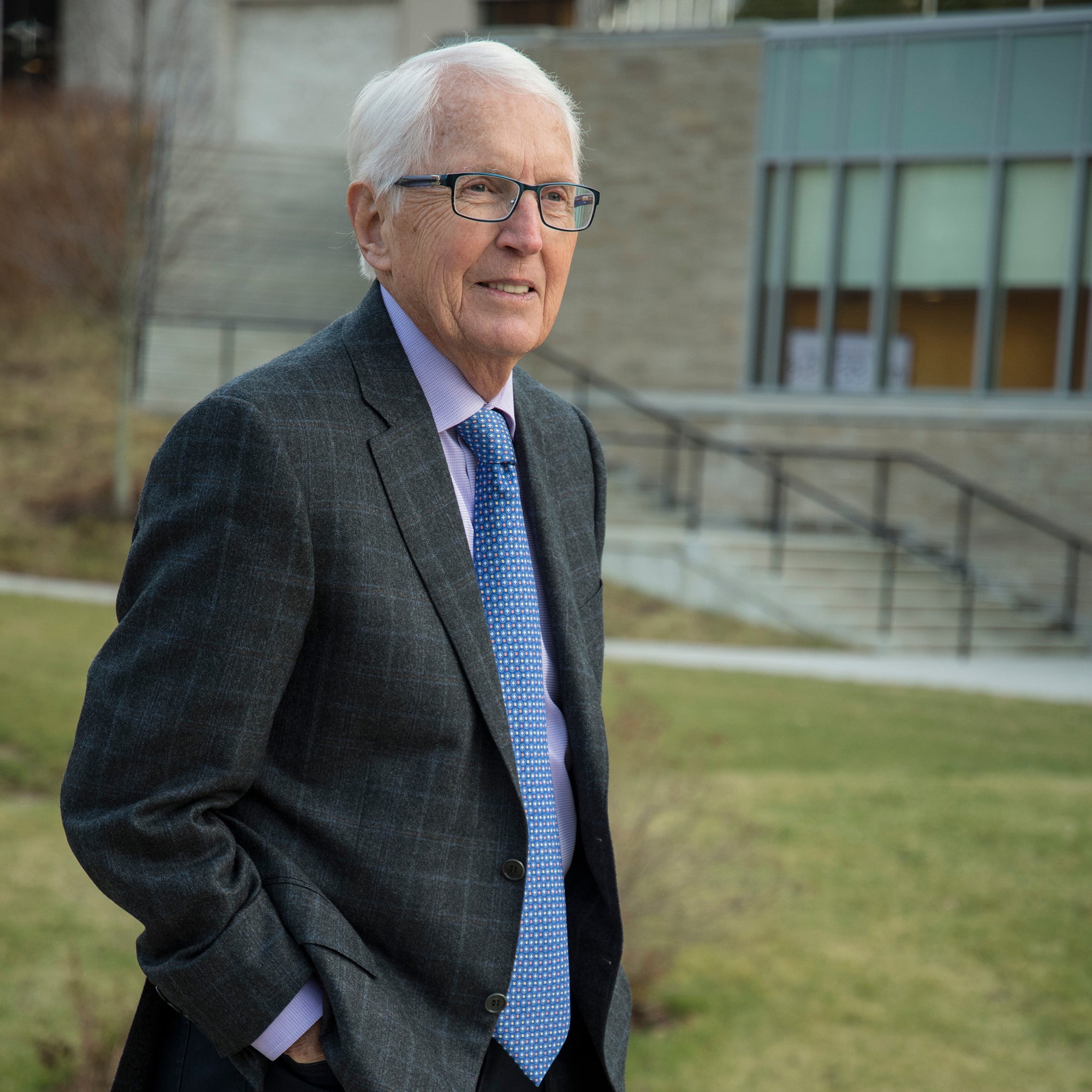KINGSTON, R.I., May 24, 2018 —The University of Rhode Island will mark important milestones in the institution’s contributions to physical and mental health with a two-day event in September featuring world-renowned Professor of Psychology James Prochaska as well as other leading experts in population health and behavior change.
During the free event, which is open to the public and will be held at 7 p.m. at Edwards Hall, Prochaska will present multiple examples of how the Center’s interventions and interactions lead to improved health and well-being of individuals and populations. For those who cannot attend, the talk will be live-streamed.
Prochaska is best known as the developer of The Transtheoretical Model of Behavior Change. The evidence-based model is used around the world, from individuals trying to adopt healthy habits to the World Bank’s governance and accountability program. The United States Agency for International Development also has used the model as a method to instill environmentally sustainable habits as a component of programs in the less-developed world.
He will present multiple examples of how the Center’s interventions and interactions lead to improved health and well-being of individuals and populations.
On Friday, Sept. 14, the University will host its first Well-Being Conference on Population Health: Breakthroughs in Population Health and Multiple Health Behavior Changes. The conference will be held at the Memorial Union, 50 Lower College Road, Kingston campus, from 8 a.m. to 7 p.m. Health and health care professionals, faculty, graduate students, psychologists, social workers, health coaches and those interested in wellness are invited to attend the daylong event. Registration is required and space is limited.
Speakers include:
- David Katz, founding director of the Yale-Griffin Prevention Research Center, an international authority on nutrition and weight control, discussing what actually can make us well;
- Leanne Mauriello, director of behavioral science and lifestyle management at Spectrum Health Systems in Michigan, speaking on promoting healthy energy balance behaviors and freedom from addictive behaviors in middle and high school students;
- John C. Norcross, distinguished professor of psychology, University of Scranton and an international leader in the science and practice of psychotherapy, discussing breakthroughs in the field;
- James Prochaska, an international leader in Population Health and Multiple Behavior Change, addressing effective and inclusive care; and several groundbreaking psychologists from Pro-Change Behavior Systems, Inc., the Spectrum Health System and URI’s Cancer Prevention Research Center.
- Dr. Josiah “Jody” D. Rich, professor of medicine and epidemiology at Brown University and a practicing infectious disease specialist at The Miriam Hospital and at the Rhode Island Department of Corrections, discussing updated approaches to the opioid epidemic.
The event, sponsored in partnership with the Office of the Provost and the College of Health Sciences, will mark the 50th anniversary of URI’s doctoral program in psychology, the 40th Anniversary of the Cancer Prevention Research Center, and the third anniversary of the Academic Health Collaborative and Institute for Integrated Health and Innovation, which brings a hands-on, interdisciplinary approach to the health sciences and health care. It also honors the late Professor Wayne Velicer, co-founder of the Center and recognizes Prochaska’s 50 years of contributions to the field as he transitions to retirement.
The conference is organized around models that integrate strategies from population health that complement those from individual health care to produce more inclusive and effective approaches to health and well-being, Prochaska said. “Rather than addressing each risk as a separate behavior, our approach integrates the small number of behaviors as critical components for systemic change that promotes well-being.”
Prochaska has served as principal investigator on more than $80 million in research grants on the prevention of cancer and other chronic diseases, authored more than 400 publications on behavior change for health promotion and disease prevention, and published four books on change, including the most recent, “Changing to Thrive,” with his wife and fellow researcher, Janice, in 2016.

